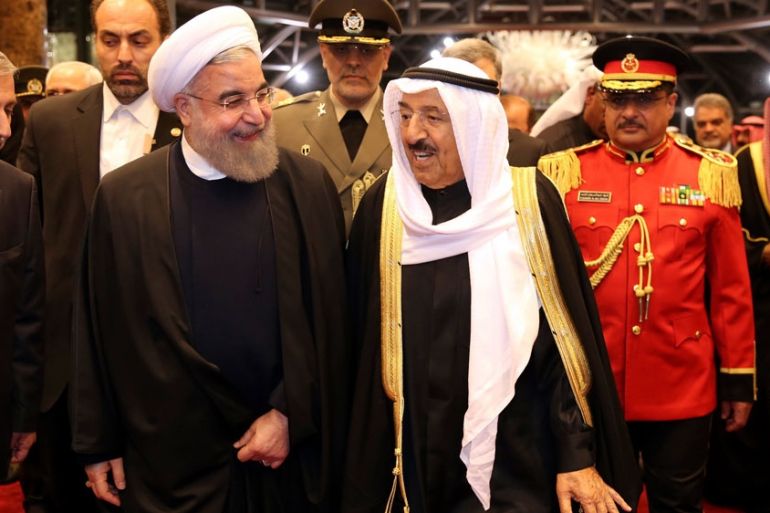Kuwait closes Iran cultural mission, expels diplomats
State news says move relates to the 2015 case of a broken up ‘terror’ cell that authorities said had contacts with Iran.

Kuwait is closing the Iranian cultural mission and related offices in the Gulf Arab state and expelling a number of Iranian diplomats stationed in the country, according to the official news agency, KUNA.
KUNA said on Thursday the move is related to the case of a “terrorist” cell broken up in 2015 that authorities allege had contacts with Iran and Hezbollah.
The KUNA report said Alireza Enayati, Iranian ambassador to Kuwait, had been notified of the decision.
A senior Kuwaiti official, speaking on condition of anonymity, told AFP news agency about 15 Iranian diplomats were expelled.
He declined to comment on whether Enayati was among them. A Reuters report said he was among those who were ordered expelled.
READ MORE: Kuwait says it busted international ISIL support cell
The official said Kuwait had also ordered the closure of the Iranian “military, cultural and trade” missions.
Iran reacted angrily, saying the accusations it was behind a terrorist cell were baseless and threatened to take similar steps.
“Iran’s strong objection has been communicated to Kuwait’s charge d’affaires,” Bahram Ghasemi, Iran’s foreign ministry spokesman, said in a statement on his Telegram channel.
“It was reiterated that Iran reserves the right to a reciprocal measure.”
‘Sensitive situation’
The Kuwaiti charge d’affaires was summoned and told “it is regrettable that Kuwaiti officials, in this sensitive situation in the region, instead of making an effort to reduce useless tensions … have targeted the Islamic republic with baseless accusations”, according to Ghasemi.
Last month, the Kuwait’s supreme court sentenced the suspected leader of the cell to life in jail and condemned 20 others to various prison terms.
Sheikh Mohammad Abdullah Al Sabah, Kuwait’s state minister for cabinet affairs, who is also acting information minister, confirmed that Kuwait had taken diplomatic action against Iran but declined to specify the measures.
|
|
“Following the supreme court ruling on the case … the government of Kuwait has decided to take measures, in accordance with diplomatic norms and the Vienna Convention, towards its relations with the Islamic Republic of Iran,” he told AFP news agency.
The supreme court, whose rulings are final, overturned the acquittal of the suspects on June 18 and sentenced them to between five and 15 years in prison.
Kuwait’s interior ministry confirmed on Tuesday that 14 of the cell’s 26 members were on the run, but said that they had not left the country through official exit points.
When the cell was broken up in 2015, large quantities of arms, ammunition and explosives were seized from them, according to Kuwaiti authorities.
The row comes as Kuwait attempts to mediate an end to the Gulf’s worst diplomatic crisis in years, after Saudi Arabia, Bahrain, Egypt and the UAE cut ties with Qatar over accusations it supports “terrorism”, an allegation Doha rejects as “baseless”.
Analysts have warned the crisis could break apart the six-nation Gulf Cooperation Council, whose members are Saudi Arabia, Bahrain, Kuwait, Oman, Qatar and the UAE.
Kuwait has not imposed sanctions on Qatar and has positioned itself as a neutral party in the crisis.
